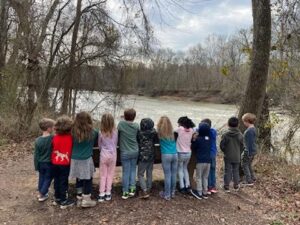 Place-based education is an approach to curriculum development and instruction that directs students’ attention to local culture, phenomena, and issues as the basis for at least some of the learning they encounter in school. It is also referred to as place- and community-based education or place-conscious learning. In addition to preparing students academically, teachers who adopt this approach present learning as intimately tied to environmental stewardship and community development, two central concerns of Education for Sustainability. They aim to cultivate in the young the desire and ability to become involved citizens committed to enhancing the welfare of both the human and more-than-human communities of which they are a part. At the heart of place-based education is the belief that children of any age are capable of making significant contributions to the lives of others, and that as they do so, their desire to learn and belief in their own capacity to be change agents increase. When place-based education is effectively implemented, both students and communities benefit, and their teachers often encounter a renewed sense of professional and civic satisfaction. – Smith, G. A. (2017). Place-based education. In Oxford Research Encyclopedia of Education.
Place-based education is an approach to curriculum development and instruction that directs students’ attention to local culture, phenomena, and issues as the basis for at least some of the learning they encounter in school. It is also referred to as place- and community-based education or place-conscious learning. In addition to preparing students academically, teachers who adopt this approach present learning as intimately tied to environmental stewardship and community development, two central concerns of Education for Sustainability. They aim to cultivate in the young the desire and ability to become involved citizens committed to enhancing the welfare of both the human and more-than-human communities of which they are a part. At the heart of place-based education is the belief that children of any age are capable of making significant contributions to the lives of others, and that as they do so, their desire to learn and belief in their own capacity to be change agents increase. When place-based education is effectively implemented, both students and communities benefit, and their teachers often encounter a renewed sense of professional and civic satisfaction. – Smith, G. A. (2017). Place-based education. In Oxford Research Encyclopedia of Education.
Five Traditional Strands
Teachers at The Hawbridge School, k-12, incorporate these strands into all of their classes. We also offer classes that are primarily focused on place: